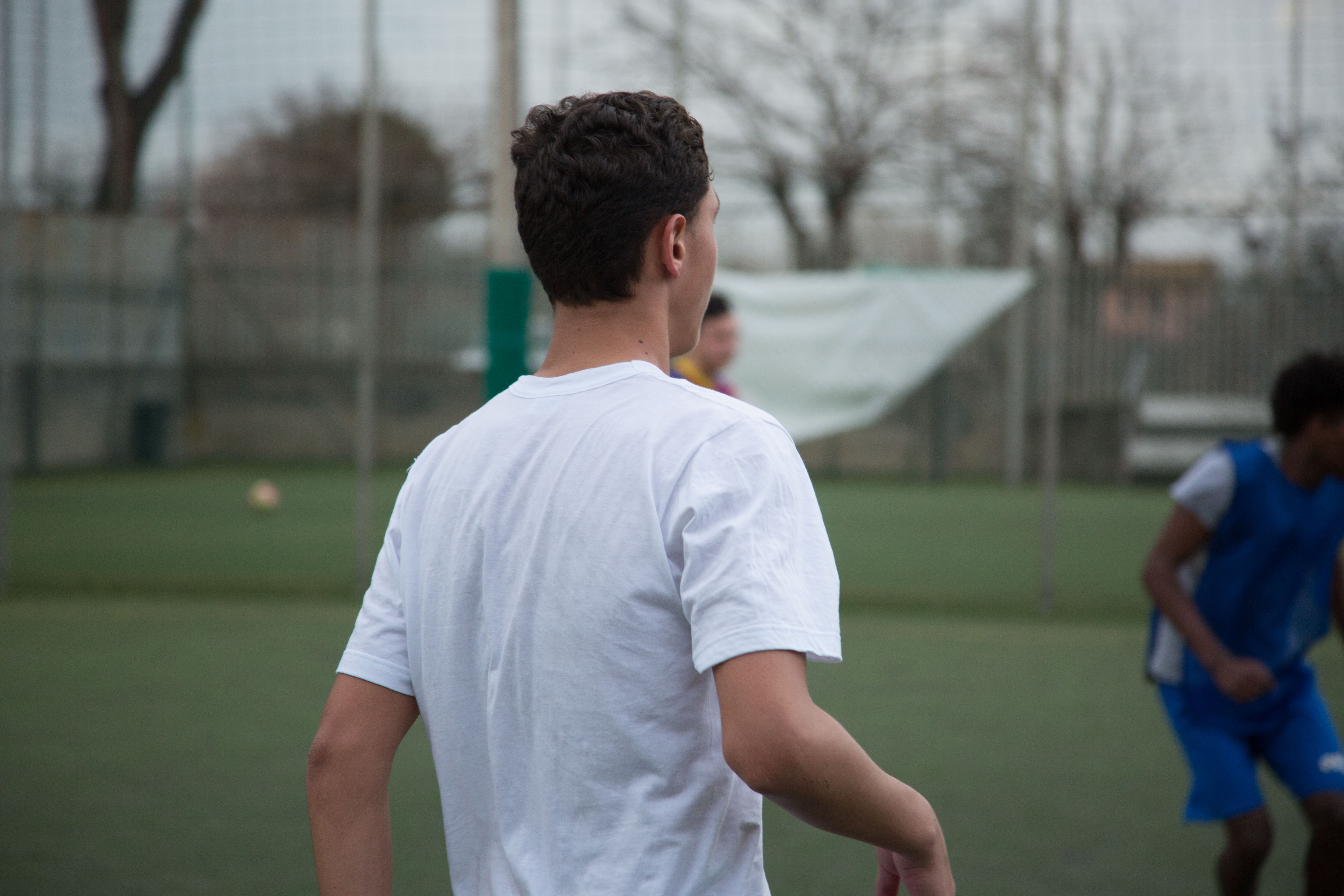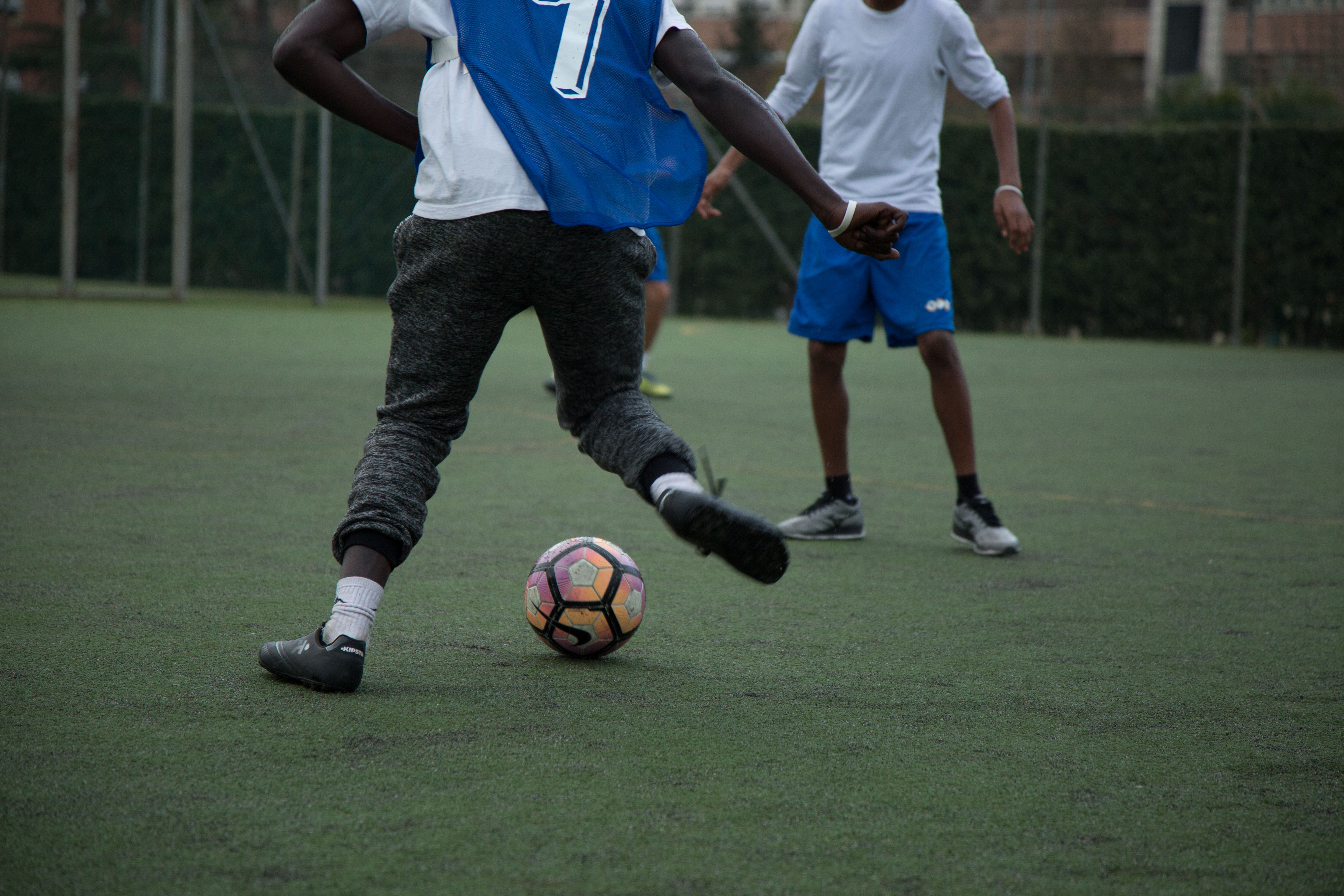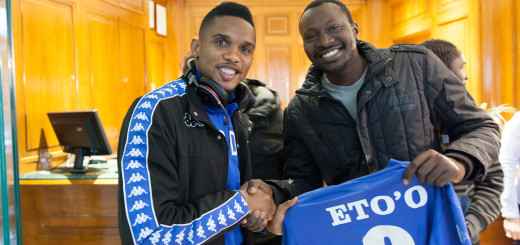FAMI: the CONI project for unaccompanied minors
 They arrived in Italy on their own, having undertaken a very dangerous journey. They faced the heat of the desert and the stormy sea to try to find a better future. From today, through a solidarity network, they can begin to dream again thanks to sport.
They arrived in Italy on their own, having undertaken a very dangerous journey. They faced the heat of the desert and the stormy sea to try to find a better future. From today, through a solidarity network, they can begin to dream again thanks to sport.
Imagine boarding one of those rickety old boats, overcrowded beyond belief, which every day make the journey between Libya and Italy. Imagine, too, being only 16 or 17 years old. Being alone, because your parents preferred to offer the chance of a better life to you. A long way from a war that kills dozens every day or from a famine which like a biblical plague has hit the village where you were born. Imagine, finally, arriving after a long journey in a foreign country and being transferred to a reception centre which houses hundreds of desperate kids like you.
So, now you have imagined all this, try to think of something that could bring a little joy to your life. Something which could lighten your soul of the weight of being so far from your loved ones, brightening your monotonous days. I’m sure that you are also thinking of a game of football or, perhaps, a nice swim in the swimming pool. Or, why not, an informal game of basketball. This is exactly the objective of the FAMI project, created by CONI and directed at unaccompanied foreign minors present in Italy. Helping integration and inclusion, offering them the chance to practise a sporting activity with the support of qualified and experienced coaches.
That which has been under way since January 2016 is a kind of pilot scheme which initially involves only a few regions (Emilia Romagna, Lazio, the Marches, Sicily and Tuscany). According to CONI, however, it will gradually be extended to cover the whole country. The FAMI project, in essence, consists of identifying sports clubs which can engage these kids in different sports, giving them the possibility to be selected, in future, in their teams. In the meantime, though, it is a great opportunity to make new friends, practise Italian and improve one’s psycho-physical condition. This last part is very important for adolescents who, by being enforced migrants, often carry with them profound traumas.
 25,000 – this is the number of unaccompanied minors who in 2016 alone arrived in Italy. Vulnerable adolescents, who need a lot of attention to make sure they don’t get swallowed up by that no man’s land made up of youth exploitation and organised crime. They need to be supported step by step. What better opportunity then, than healthy physical activity with Italians of the same age. These can also become moments of cultural exchange. Trying to overcome the diffidence and the prejudices that now seem to be increasingly prevalent in Italy and in the rest of Europe.
25,000 – this is the number of unaccompanied minors who in 2016 alone arrived in Italy. Vulnerable adolescents, who need a lot of attention to make sure they don’t get swallowed up by that no man’s land made up of youth exploitation and organised crime. They need to be supported step by step. What better opportunity then, than healthy physical activity with Italians of the same age. These can also become moments of cultural exchange. Trying to overcome the diffidence and the prejudices that now seem to be increasingly prevalent in Italy and in the rest of Europe.
Up to now, the number of young people interested nationwide is 750. The objective is very ambitious: to involve about 3,800 boys and girls over a three-year period. All are minors with no family who, Stefano Bellu, the curator of the project, tells me, have been selected by the reception centres where they live. The activity of the social operators, Stefano adds, is fundamental. Without their competencies, he confesses, it would have been impossible to adequately manage such complex personal situations. What they are trying to do, he adds, is to increase as much as possible the turnover among the boys and girls. By the time they reach 18, different living and working solutions should have been found for them.
Obviously, if I may say so, when we talk about integration through sport we can’t leave out Liberi Nantes. And that is the case this time too. Since last July, the Association has taken charge, through coach Toti, of a group of about 40 young people from different African countries and others too (like Egypt, the Gambia, Guinea and Albania). This “colourful” football team, the coach tells me, meets once a week at the Fulvio Bernadini centre for a training session in both 11-a-side and 5-a-side. The hope is that one day they may make into the big family this is Liberi Nantes.
Despite the inevitable difficulties, coach Toti assures me, the lads have managed to create a very cohesive group. In no time at all, they have become protagonists in initiatives which are slightly removed from the FAMI project in the way it was conceived by CONI. Taking part in various tournaments organised by the Oratory of Piazza Bologna or the Oratory of S. Francesca Cabrini, who, among other things, train at the April 25th sports ground. A demonstration that football, and sport in general, is able to give people back the will to live better than anything else in the world.
If it’s possible, however, in this case Alberto Urbinati and his people, have managed to do even more and, maybe, even better. The lanes of a swimming pool, that in the Fulvio Bernadini sports complex, have taken the place of the football pitch. The objective, however, is always the same: using sport a vehicle for the integration of migrants and refugees. The umpteenth noble initiative which is trying to go beyond the colour of someone’s skin and their nationality. All in the name of a solidarity which crosses boundaries and borders.
There’s no better conclusion than to borrow once again the words of Stefano Bellu. Convinced that initiatives like that of the FAMI project are the best ways that exist to help the inclusion of who, escaping war and poverty, is in search of a foothold to rebuild a life. It is important, though, that these are not isolated occasions. That, on the contrary, they are inserted into a wider and more structured perspective. A model of integration, so to speak, that makes Italy an example for other countries to follow.
(Mattia Bagnato)


